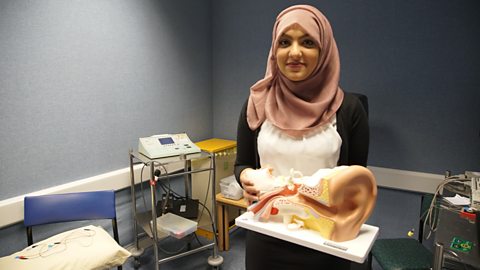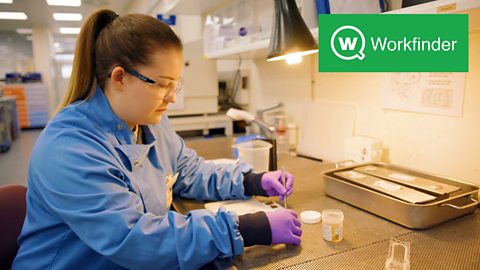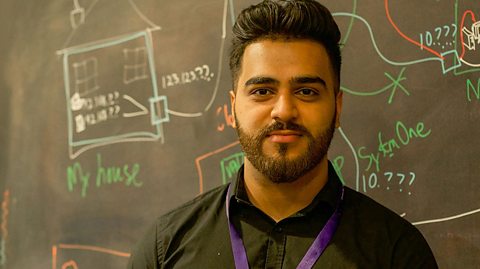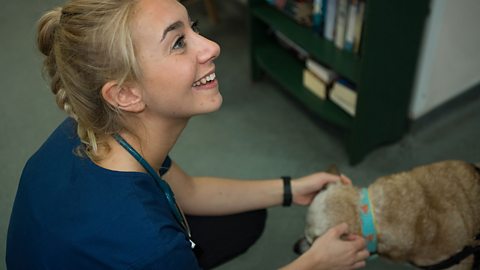Meet Amun, 24 from Middlesbrough. She works as an audiologist, helping people with hearing loss or dizziness because of their ears. Part of our Bitesize world of work series.


What is your job?
I deal mainly with ears – with people who have hearing loss or dizziness because of their ears. I work with both children and adults. I repair and maintain hearing aids, I do hearing tests and diagnose people with hearing loss.
What skills do you use in your work?
A lot of our work requires clear communication – mostly simplifying words as a lot of it is physics-based, which can sometimes confuse people. We give basic instructions and try not to overwhelm people when we tell them that they have a hearing loss. Time management is also important – we don’t always know who’s going to walk through the door, so you have to be able to adapt to things.
Is this the job you always wanted to do?
I knew I wanted to do something in science and something in a hospital. My grades weren’t very good, but I was able to do a foundation course at my uni followed by a three-year Biomedical course. When it came to choosing our options, I then chose audiology as my specialism. With our course we did theory work and then placements. I did one of my placements at the hospital where I now work, so when I finished my course, I applied here. I already knew how the department worked and it was close to home.
What subjects did you study at school?
For GCSEs I did double Science, Maths, English, Business, ICT, and French – I passed all of them. I was brilliant at Science. I did an AS-level in Critical Thinking along with Biology, Psychology, Physics, and Chemistry for AS. I dropped Chemistry and continued with the others. I didn’t do well enough to get onto the courses I'd applied for – I could have waited for clearing, but instead I started a one year foundation course which led to a three-year Biomedical course.


Top tips
If you’re a ‘people person’, this is definitely the job for you, especially if you have a clear voice. If you are open to meeting different sorts of people, then this is a brilliant job for you
Keep your options open. If you don’t know what to do, pick a mix of subjects.

What to expect if you want to be an audiologist
- Audiologist average salary: £25,654 to £45,838 per year (Band 5-Band 7)
- Audiologist typical working hours: 38 to 40 hours per week
What qualifications do you need to be an audiologist?
You could get into this role via a university course or a degree apprenticeship. You'll usually need two to three A-levels, including a Science, or equivalent, for a degree. You'll usually need four to five GCSEs at grades 9 to 4 (A* to C) and A-levels, or equivalent, for a degree apprenticeship. Alternatives to A-levels include taking a T-level (England-only), which is equivalent to three A-levels. Check with your course provider which alternative qualifications they accept.
Sources: LMI for All, National Careers Service, NHS Health Careers, GOV.UK.
This information is a guide and is constantly changing. Please check the National Careers Service website and the NHS Health Careers website for the latest information and all the qualifications needed and the GOV.UK website for more on T-levels.
For careers advice in all parts of the UK visit: National Careers Service (England), nidirect (Northern Ireland), My World of Work (Scotland) and Careers Wales (Wales).


Work experience in your area
Find work experience placements with Workfinder.
Tips and advice
Help with interviews, writing a CV and all things work experience related.


Khadija: first aider
Khadija uses her medical knowledge to teach young people first aid.

Meet Inshal
Learn more about the route that Inshal is taking to become a doctor.

Lucy: vet
Lucy uses her knowledge of Biology in her job as a vet.
